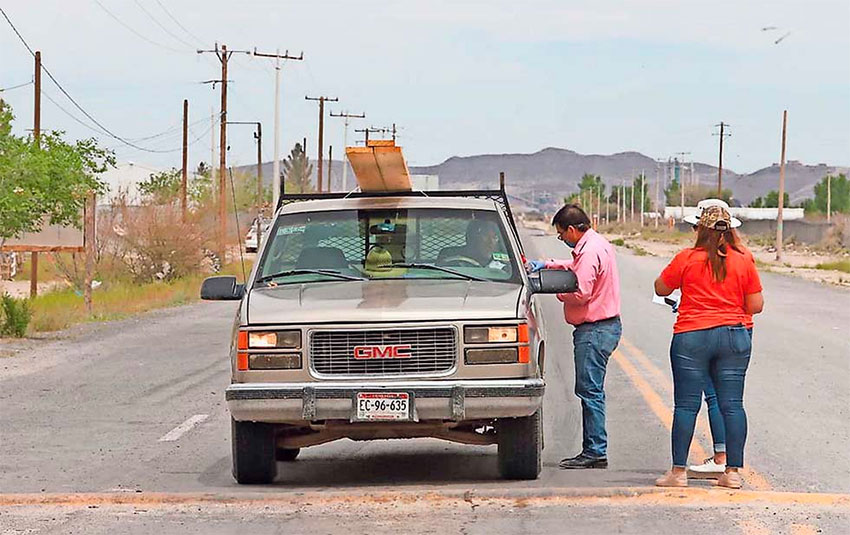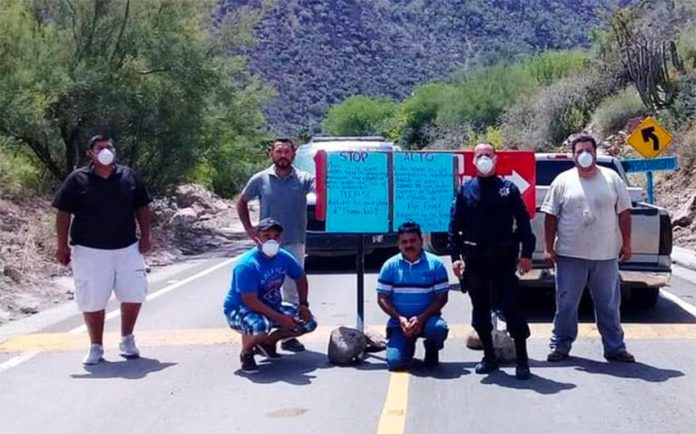Residents of indigenous communities across the country are starting to say no to visitors, closing off access to their towns in order to avoid Covid-19 outbreaks in areas with high concentrations of vulnerable people and few medical resources.
Residents of San Javier in the Baja California Sur municipality of Loreto came to a consensus to close off the town on Thursday, citing the high percentage of elderly people and a lack of medical supplies.
Local authorities said there were currently no confirmed cases of Covid-19 in Loreto, and the citizens of San Javier are hoping their isolationist tactics will keep it that way.
In the south of the country, residents of San Juan Bautista Valle Nacional in northern Oaxaca voted by 80% to close the municipality off to outsiders to avoid contagion.
Mayor Rey Magaña García said that the vast majority of the municipality’s 53 communities voted to block access roads to all who are not residents, including relatives from other areas.
He also cited the risk to the municipality’s vulnerable population as a reason for taking the action, noting that Valle Nacional receives a lot of traffic moving between the state’s Cuenca del Papaloapan and Valles Centrales regions.
Restaurants in the municipality remain open, but only for take-out orders, tourist centers like the Monte Flor and El Zuzul swimming holes are closed and police are patrolling the river to ensure people aren’t gathering to swim.
Several communities in the Chiapas municipality of Ocozocuautla took similar measures to avoid Covid-19, blocking highways, closing tourist services and publicly requesting that people not visit.
In the north, authorities in two Chihuahua municipalities have been told by the state government that their decisions to close their towns were illegal.
Residents of Samalayuca formed brigades that began to stop and try to “persuade” visitors not to enter the municipality on March 26. Four days later, Mayor Javier Meléndez Cardona announced the all-out closure of access to anyone not from the 1,500-population town.
“Please don’t come,” he said on social media, adding that parks, tourism and other attractions were all shut down anyway. Samalayuca is known for its white sand dunes, waterparks, cave paintings and agricultural festivals.

The restriction applies only on weekends and will remain for the duration of the month-long emergency period.
Over 600 kilometers away, the municipal government of Urique, located in the famous Copper Canyon region, has prohibited outsiders from both entering and leaving the town.
Municipal representative Angélica Torres said that the decision aims to protect the town’s indigenous residents, who make up around 70% of its population.
“[Indigenous residents] are a bit more rooted in their customs and they don’t pay attention to whatever normal preventative measure we might tell them, like washing their hands, keeping their distance, sneezing into the arm,” she said of the threat the virus poses to them.
“They definitely don’t comply with these types of measures and the truth was that this was one of the situations we thought about most … that if there is contagion in the municipality, they’ll be the main ones affected,” she said.
Speaking to both the local community and tourists from across the globe, Torres pleaded with people not to visit the popular tourist destination during the Covid-19 pandemic crisis.
“We’re issuing this request to the community and to tourists in general not to come to our municipality for the wellbeing of our Rarámuri people, who are our most vulnerable population … [and] for the wellbeing of everyone,” said the local government in a statement.
“Please pardon the inconvenience. We’ll get through this crisis together,” it said, adding that the closure will be lifted on April 20.
A spokesperson for the state Ministry of the Interior, Alejandro Solís, said that both municipalities were alerted that their closures were illegal by state Interior Minister Luis Fernando Mesta Soulé on March 30.
“In the end it’s a crime to impede the transit of other people,” said Solís.
“We understand perfectly that the authorities are worried about their citizens, but … in this case they’re violating a [constitutional] right,” he said.
There is currently no effort at the state level to open up the communities, he said, as they are hoping the communication will be sufficient for the municipalities to make the decision to do so themselves.
Chihuahua had 11 confirmed cases of Covid-19 as of Friday, and the number of suspicious cases had dropped to 20. Oaxaca had 22 confirmed and 73 suspicious cases. Chiapas had 18 confirmed cases and Baja California Sur had 21.
Sources: El Sudcaliforniano (sp), NVI Noticias (sp), Cuarto Poder (sp), Pie de Página (sp)
